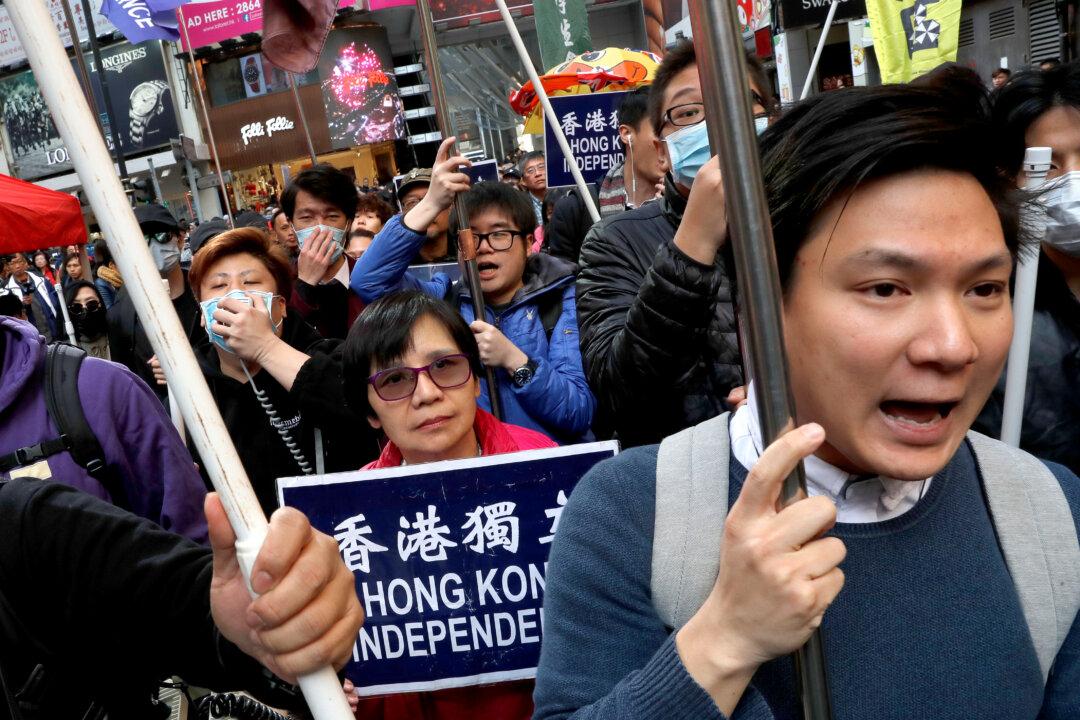HONG KONG—More than 200 protesters gathered at a Hong Kong university on March 7 to condemn the expulsion of a student defending free speech, in what is seen as another incremental sign of eroding freedoms in the Chinese-ruled city.
The former British colony reverted to Chinese rule in 1997 with the guarantee of a high degree of autonomy and civil liberties, including academic freedoms and free speech not permitted in mainland China.





